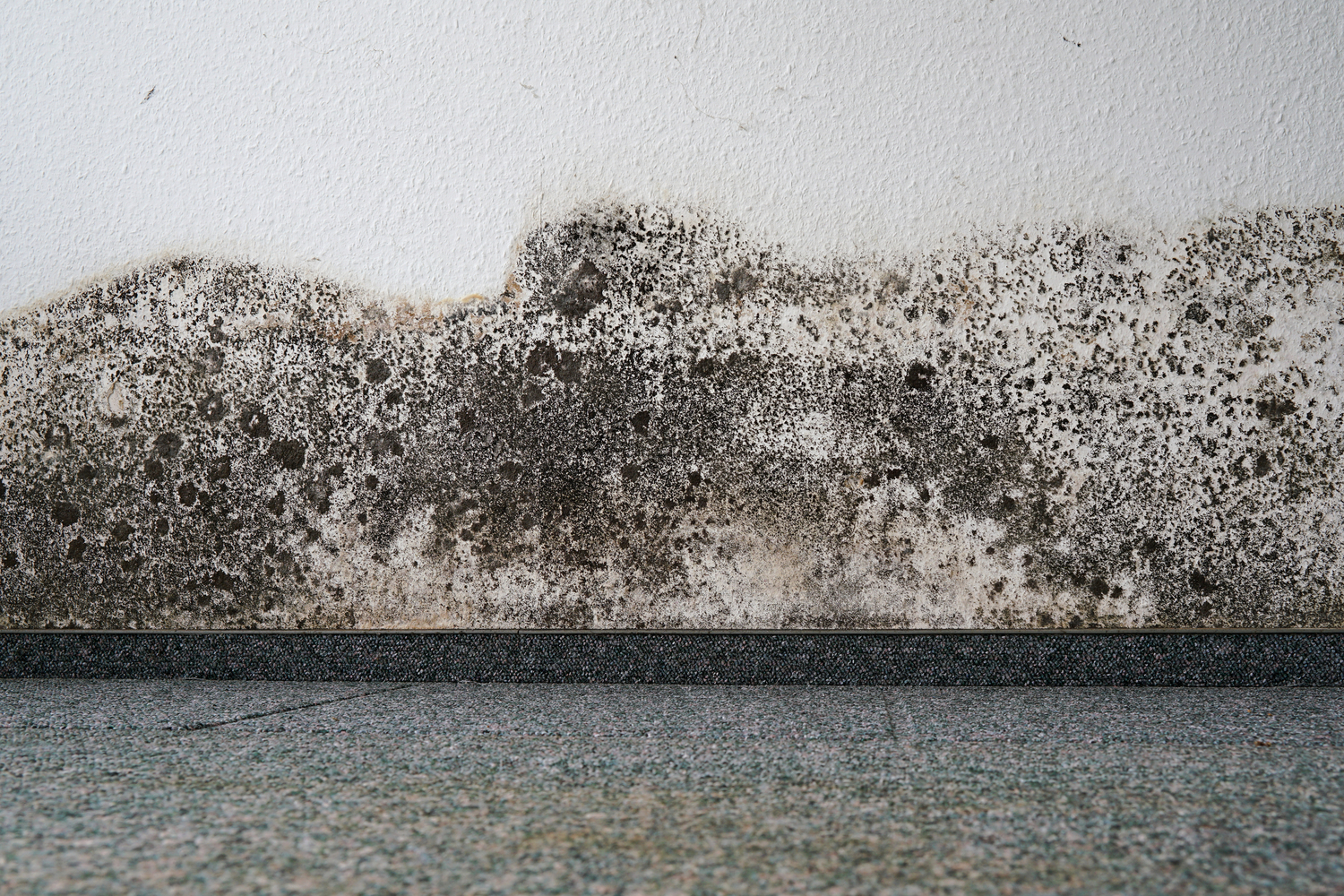There has been a lot of hype in the past few years about the risks of exposure to mold, in particular, “black mold”. We at Water Mold Fire Restoration , 800-905-0277, would like to address our clients’ serious health concerns revolving around the dangers of mold exposure. To answer the question and get right to the point, the answer is no, mold won’t kill you, but lengthy exposure to mold can cause you or your family serious, lifelong health effects and illnesses.
What Groups Have the Greatest Health Risk Due to Mold Exposure?
Very young children – people in this age group have immune systems that haven’t fully developed. In most young people, their immune system doesn’t achieve its peak performance until they have reached their early to mid twenties.
Older individuals – older adults and seniors have less immune cells than they did during midlife. Also, it has been scientifically proven that the immune cells that are left do not communicate with each other as well as they did during middle adulthood. This means that the immune cells in older adults don’t react to harmful germs as fast as when the person was younger.
People with compromised immune systems – this type of problem can result from genetics or be acquired. It can be temporary or permanent. One of the more common causes for a compromised immune system is HIV/Aids. Others include chemotherapy or radiation treatments, primary immune deficiency (genetically from birth), malnutrition, etc.
People with pre-existing conditions – this applies to persons suffering from infectious diseases, taking certain medications, some types of steroid therapies.
Pregnant women – pregnancy puts extra stress on a woman’s body. Since mold is capable of causing serious illness, pregnant women should avoid prolonged exposure to it. The Centers for Disease Control and Prevention (CDC) reports that exposure to some forms of mold during infancy can cause bleeding in the lungs (a condition known as idiopathic pulmonary hemorrhage).
What Is Mold?
Mold is probably one of the most common living things on earth. Mold is a fungus that can grow almost everywhere, both inside structures and outdoors. Mold’s job, its purpose, is to breakdown organic material, consume some for its self, and make the remainder of the material accessible for other organisms. Outside, we don’t get too concerned, but when it is found in our homes, it is quite a different issue.
Mold will grow under dark, moist conditions. It favors paper, cardboard, ceiling tiles, and wood surfaces in particular. As long as your home contains none of these materials, you should have no problem with mold growth… uh Right!
Reduce Your Risk of Mold Exposure
Reducing the chances of mold developing and the risks of being exposed to it doesn’t involve any complex rocket science. It’s really quite simple to keep mold at bay, as long as you take fast, appropriate action:
- Clean up and dry out any water that floods your home
- Fix leaky doors, windows, roofing, and plumbing without delay
- Keep your home’s humidity levels under 60%
- Keep bathrooms, laundry rooms, and kitchens well ventilated
Flooding Waters
Here, we don’t mean actual flooding from oceans, streams, or rivers, although that may happen. We mean any water breaks that may affect your home. Incidents like water from burst water pipes, broken hot water heaters, or malfunctioning appliances. If an event like this occurs and you can’t handle the mess yourself, restoration companies like ours, Water Mold Fire, can help by extracting the water and drying out walls and carpets.
Leaks
All water leaks, big or small need to addressed and corrected as quickly as they are discovered. At the first sign of any water leak or water damage you need to take action quickly.
Humidity
This is a sneaky one. Humidity problems can happen gradually. Often times we are not even aware that there is a problem until it is too late and you notice fuzzy things growing on walls or in basement corners. Purchasing a gauge that measures humidity can be helpful in keeping an eye on this potential problem.
Ventilation
One of the easiest ways to control humidity and moisture in bathrooms, laundry areas, and kitchens is to have and utilize exhaust fans. Run them during room use and maybe do like Motel 6 and “leave a light on” overnight every once in a while. Mold dislikes air movement and light.
What Health Issues Can Mold Cause?
Inhaling or coming into contact with mold or mold spores may cause many allergic reactions. These reactions can be immediate or delayed. According to the Centers for Disease Control and Prevention (CDC) exposure to moldy environments may cause a variety of dangerous health affects:
- Stuffy or Runny Nose
- Wheezing
- Eye and Throat Irritation
- Coughing
- Skin Rash
- Asthma
- Upper Respiratory Tract Infections
- Lung Irritations
Other conditions that are suspected by the CDC, but have yet to be scientifically proven include:
Acute idiopathic pulmonary hemorrhage (bleeding in the lungs)
Memory Loss
Lethargy
Removing Dangerous Mold From Your Home
Mold remediation is serious work with serious health risks. It is not a job for everyone. Before beginning any mold remediation project you must understand the entire process and what may be involved. The mold you can see is usually not the only mold present. A certified mold remediation specialist, who understands the risks, will be able to find hidden mold. The specialist will also know how to limit the risks of cross-contamination and safely remediate the problem while taking into account your and your family’s welfare.
When it comes to mold removal, a general contractor, construction company, or handyman is not necessarily your friend. A knowledgeable specialist is required.
If you find mold in your home you contact Water Mold Fire Restoration at 800-905-0277 immediately. We have certified mold remediation teams standing by, 24/7, that will assess the damage and safely eliminate your home’s mold problem If you feel the need to seek additional information about mold and mold remediation, we can also be contacted by email at help@watermoldfire.net.








